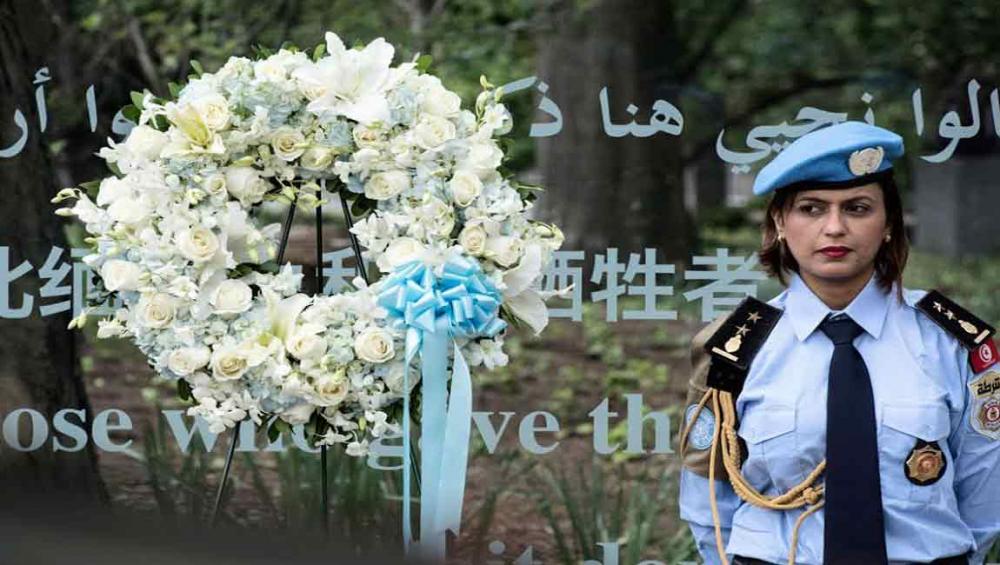Just Earth News 30 May 2017, 06:27 am Print

Mark Garten
In an opinion piece in the Boston Globe , the Secretary-General wrote that “too often, United Nations peace operations face a gap between our goals and the means we have to achieve them.”
He noted that peacekeepers, known also as 'blue helmets' for their iconic headgear, are deployed to many placed were warring parties show little commitment to peace, and are themselves increasingly targeted by parties to conflict and violent extremism.
“Dealing with this near reality requires a serious strategic reform on our part, based on an analysis of the mandates and capacities of our missions and our partnerships with governments and others,” he said.
Guterres noted that significant reforms in peacekeeping have already reduced costs and made deployments faster and more flexible.
Peacekeeping is already “cost-effective,” he said, noting that its budges is less than half of one per cent of global military spending and shared by the 193 UN Member States.
Referencing studies in the United States which show that UN peacekeeping missions are estimated to be eight times more cost-effective than when the US acts alone, Guterres wrote that “investment pays off many times over when we consider the economic growth and prosperity that follow from increased stability and security after successful peacekeeping missions.”
UN blue helmets have helped to stabilize and strengthen the development and economics in countries ranging from El Salvador to Namibia, and from Mozambique to Cambodia.
So far, 54 missions have completed their mandates and closed, with two more – Cote d'Ivoire and Liberia – expected to do so in the coming months.
These missions have left a legacy that includes the dedication and courage of those serving, and of those who died in duty.
Since the first peacekeeping operation in Palestine in 1948, more than 3,500 UN staff have died in the service of peace – including 117 military, police and civilian peacekeepers from 43 countries who died in service last year.
“United Nations peacekeepers place themselves in harm's way every day, between armed groups that are trying to kill each other and to harm civilians,” Guterres wrote, noting in particular the situation in the Central African Republic where a number of UN colleagues have been killed recently.
Peace is an abstract concept, he said, but peace on the ground depends on “gruelling hard work, every day, under difficult and dangerous conditions.”
Guterres noted that despite heroic efforts every day, the reputation of peacekeeping has been tarnished by “appalling” cases of sexual exploitation and abuse.
To tackle this scourge, he recently presented a plan to all Governments which aims to end impunity and create victims' rights advocates at UN Headquarters and in peacekeeping missions.
On 29 May in 1948, the first UN peacekeeping mission began operations in Palestine. In 2002, the UN General Assembly designated 29 May as the International Day of United Nations Peacekeepers. The annual observance was marked this past Friday at Headquarters, where the Secretary-General presided over a wreath-laying ceremony in honour of all peacekeepers who lost their lives while serving under the UN flag.
- Ali Khamenei (1939–2026): Iran’s Supreme Leader who ruled with an iron grip
- Trump signs 10% global tariff, says it takes effect ‘almost immediately’
- BJP wins a seat in Bangladesh — But not the one you think!
- Meet Shabana Mahmood: Could she take over as UK’s first Pakistani-origin Muslim PM?
- Dalai Lama's Office breaks silence on Epstein claims





-1763561110.jpg)
